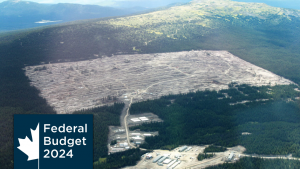MISSISSAUGA, ONT., — New Canadian commercial real estate statistics reveal a stronger than expected second quarter, with more of the same expected in future, suggests a new report issued by Morguard Corporation.
The prediction stands even though there was a recent rise in interest rates, said Morguard in a statement issued Aug. 1.
Early estimates indicate that commercial real estate investment remained brisk during the second quarter. The office sector is expected to lead the way with $2 billion in closing volume, with the retail and industrial asset classes registering more than $1 billion each.
"After a second consecutive quarter of stronger than expected economic output, projected growth for 2017 has now surpassed 2016 levels, with signs pointing to an early winding down of global monetary stimulus," said Keith Reading, director of research at Morguard, in the statement.
"Despite a perceived eagerness to raise interest rates, particularly in the United States, low inflation pressure should continue to act as a buffer against rapid monetary policy change in the near term."
The leasing sector also exhibited progress in the second quarter. Nationwide office vacancy rates remained low, led by record-low vacancy in the Toronto downtown submarket and declining rates in Vancouver and Montreal. Healthy office occupancy rates were tempered slightly by Calgary and Edmonton, which are still battling extended oil sector weakness, the statement indicated. Similar trends were identified in the industrial sector, with low national vacancy rates despite higher vacancies in the two Alberta population centres.
In the housing market, recent policy changes began to produce the desired cooling effect, reported Morguard. Total sales and average pricing both dipped during the quarter but there are indications that the respite might not last long.
"Historically hot markets like British Columbia, Toronto and Montreal are already showing signs of reheating despite recent cooldown efforts," said Reading. "Long-term, however, the cumulative effect of increasing interest rates should act as a buffer against future housing market imbalance."
Demand for Canadian commercial real estate continues to outpace supply, said Reading.
"While we anticipate that interest rates will continue to rise, the change will occur gradually and at levels that remain palatable for investors," he explained. "There will be little variation in the strength of the Canadian property market in the near term."











Recent Comments
comments for this post are closed